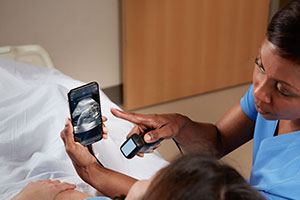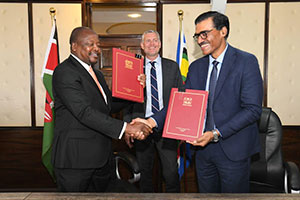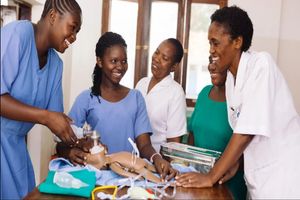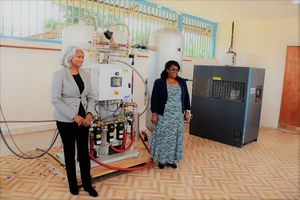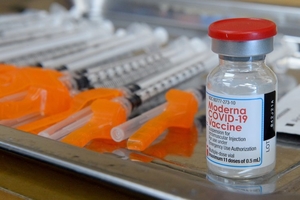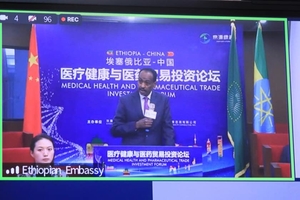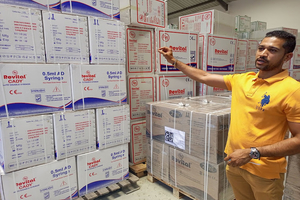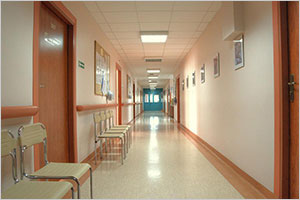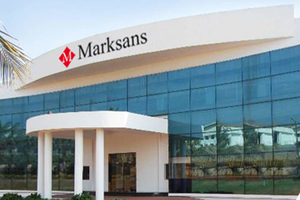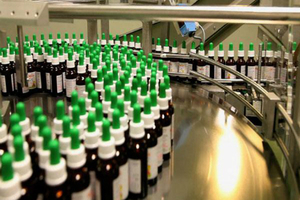Kilimanjaro — The government is making major headways in improving the health sector-key to human development after the launch of the new level three state-of-the-art public laboratory at Kibong’oto Infectious Diseases Hospital in Siha District, Kilimanjaro Region.
Inaugurated by Vice-President Philip Mpango, the facility will play a crucial role in curbing spread of infectious diseases in the country, and thus, improve the economy and wellbeing of the people.
Installation of the facility is part of strategies by the government of Tanzania to improve health care in the country through the Third Five-Year Development Plan (FYDP III) spanning between 2021/2022 and 2025/2026.
The plan is being implemented under a theme; “Realising Competitiveness and Industrialisation for Human Development.”
In implementing the FYDP III, the government seeks to strengthen health management systems, service availability and delivery by improving infrastructures, professionals, medical equipment and supplies, reagents, medicines, curative and preventive care, and health insurance in the realm.
FYDP III also prioritises the resolution of quality challenges in health service and this is what the government seeks to achieve after undertaking major upgrade at the Kibong’oto Infectious Diseases Hospital.
The laboratory in question is used to study infectious agents or toxins that may be transmitted through the air and cause potentially lethal infections. Researchers perform all experiments in a biosafety cabinet.
Speaking before Dr Mpango, the government’s Chief Medical Officer (CMO), Prof Abel Makubi, elaborated that the laboratory was constructed in two phases at a total cost of 12.5bn/-.
According to Prof Makubi, the facility will provide services such as diagnosis and follow-up on detection of infectious and epidemic diseases which have been outlined by the World Health Organisation (WHO).
In addition, the new lab will be used to make close follow-up of bacteria which have been resistant to drugs being used to treat various diseases and determine the quantity of drugs in the human body.
Prof Makubi elaborated that the facility will be used for research purposes and innovation on medical science in prevention of infectious and epidemic diseases through invention of new medicines, reagents, medical equipment and vaccines.
“The other importance of the laboratory is storage of bacteria of various diseases and their genetics, which will be used for training of diagnostic investigations and innovation for medical experts,” he explained.
With the above-mentioned functions, Prof Makubi was highly upbeat that the new facility will improve health services and reduce costs, which have been incurred by the government for transporting samples abroad for diagnosis.
The CMO stated that the idea to procure and install the new laboratory dates back to the year 2016, when the Ministry of Health prepared a proposal for establishment of the facility at the Kibong’oto Infectious Diseases Hospital.
Prof Makubi said the project was among others intended to upgrade the Kilimanjaro-based health facility from a national referral hospital for Tuberculosis (TB) to national hospital for specialised diagnosis and treatment of all infectious diseases.
The health facility was formerly known as Kibong’oto National Tuberculosis (TB) Hospital. It was established in 1926 as a TB sanatorium.
During implementation of the FYDP II plan, the number of health facilities in the country has increased from 7,014 in 2015 to 8,783 in December 2020.
The government constructed 1,198 new Dispensaries, 487 Health Centres, 99 District Council Hospitals and 10 Referral Hospitals in Geita, Katavi, Simiyu, Njombe, Songwe and Mwanza in addition to Shinyanga, Singida, Manyara, Arusha and Mara regions.
Through the plan, the government is as well constructing three Zonal Referral Hospitals namely the Southern Highlands Zone Referral hospital in Mbeya, Southern Zone Referral Hospital in Mtwara and Lake Zone Referral Hospital in Geita.
The government has also completed rehabilitation of ward number 18 (Sewa Haji) and construction of wards for private patients at Muhimbili National Hospital (MNH) in Dar es Salaam.
Construction of emergency services building and renovation of X-Ray building at Dodoma Referral Hospital has also been completed, and work for Uhuru Hospital in Dodoma has reached 98.2 per cent.
Through the said interventions, performance of key health indicators such as maternal mortality, neo-natal mortality and under-five mortality have been declining at an encouraging rate.
Under-five mortality rate has declined from 67 per 1,000 live births in 2015/16 to 50 per 1,000 live births in 2019/20.
Tanzania has continued to be one of the leading countries in Africa in vaccinating children under one year. In 2019/20, 98 per cent of all children under-one-year-old were vaccinated compared to 82 per cent in 2015/16, thus exceeding the 90 per cent target set by WHO.
Also, during 2019/20, 81 per cent of all pregnant women made four or more visits at antenatal clinics compared to 39 per cent in 2015/16 implying that more pregnant women receive quality care and advice on safe birth control methods.
The number of pregnant women giving birth at health facilities increased from 64 per cent in 2015/16 to 83 per cent in 2019/2020.

